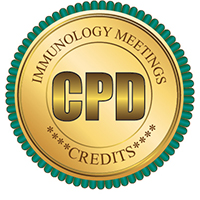
Itai Benhar
Tel Aviv University, Israel
Title: A modular platform for targeted RNAi therapeutics using biologically-lipidated antibodies
Biography
Biography: Itai Benhar
Abstract
Small interfering (si) RNAs can be used to silence disease-causing genes. However, their development as drugs has been limited mainly to knocking down liver gene expression, since delivery to other tissues requires development of a targeted delivery carrier. Modulating immune cells function using siRNAs holds great promise in advancing targeted therapies to many immune-related disorders including cancer, inflammation, autoimmunity, and viral infections. However, the ability to effectively knockdown gene expressing in leukocytes is still challenging. Here we present a modular platform to target specific cell types, exemplified here with immune cells, using siRNA loaded lipid nanoparticles (LNP) coated with oriented, targeting antibodies non covalently bound to a membrane-anchored lipoprotein that recognizes their Fc domain. Unlike chemically conjugated antibodies, these oriented antibodies maintain their high affinity and the LNPs avoid scavenging by Fc receptors on macrophages. A simple switch in 5 different targeting antibodies (against Ly6C, CD3, CD4, CD25 and Itgb7) redirected the LNP for exquisitely specific uptake in diverse leukocyte subsets in vivo and enabled specific knockdown in difficult-to-transfect CD4+ cells. Intravenously injected anti-Ly6C-coated LNP encapsulating TNF siRNAs were taken up selectively by Ly6C+ monocytes and activated tissue macrophages, suppressed TNF-alpha expression in the colon and ameliorated inflammatory bowel disease symptoms in a DSS-induced colitis mouse model, demonstrating the platform’s potential therapeutic utility. This approach opens new avenues for studying cell biology in vivo and potentially for a wide range of therapeutic applications in a cell-specific manner.

